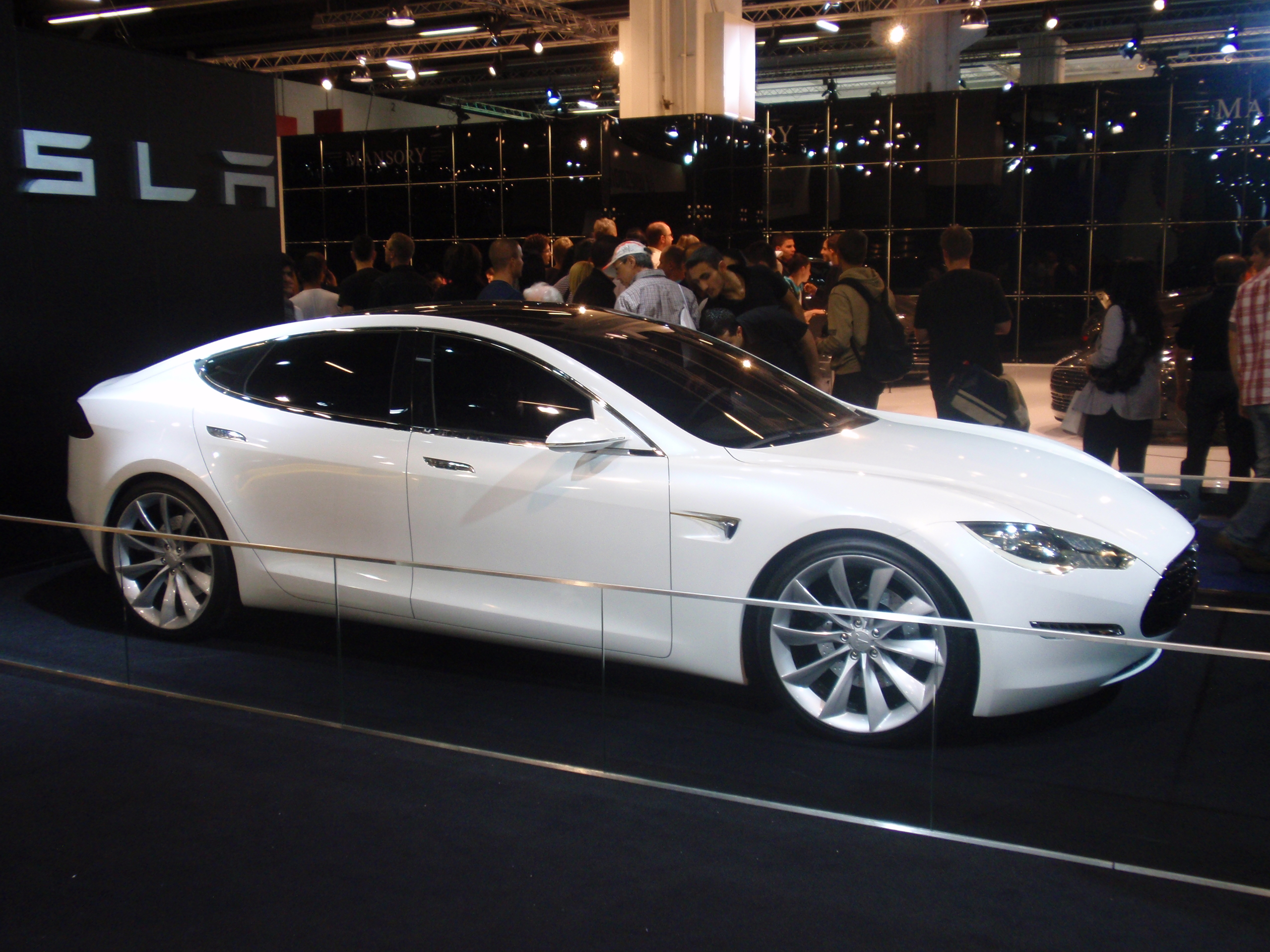During the 2017 Consumer Electronics Show, luxury electric car company Faraday Future declared that they had the fastest electric car in the world with the FF91. Recently, Tesla Motors responded by unleashing the full capabilities of its Model S P100D and beat Faraday Future’s vehicle by a hair’s breadth.
Faraday Future has been nipping at the heels of Tesla ever since it was founded, with proponents saying that it will be the one to finally overtake Elon Musk’s global monster of a car company. During the most recent CES, Faraday shared footage of its FF91 beating the Model S in a drag race courtesy of its acceleration from 0 to 60mph in 2.39 seconds, Futurism reports.
Tesla responded by having its engineers activate the recently updated Ludicrous Plus mode in its P100D, which accelerated the vehicle to 60mph in 2.389 seconds. That’s literally one millisecond of difference, but it still makes Tesla the maker of the fastest electric vehicle around. Musk isn’t done yet, however.
Never one to back down from a fight, the eccentric billionaire believes that Tesla can push its production vehicles to accelerate from 0 to 60mph in 2.34 seconds. Considering that the race model of the Model S vehicle with Ludicrous Plus mode enabled is already capable of reaching 62mph in a mere 2.1 seconds, it’s not that hard to believe that Musk actually means what he is saying.
Of course, since Musk isn’t exactly one to brag, he simply Tweeted that 60mph in 2.34 seconds “might be achievable” in light of early results from the test. This isn’t even the only thing that Faraday might have to be afraid of either.
As Tech Times points out, the FF91 that the company showed off during CES isn’t a production model, while the Model S that it was pitted against was. This means that the FF91 that will eventually come out will be heavier, which will make it slower. All things considered, it’s beginning to look like Faraday’s case is hopeless.



 Elon Musk’s SpaceX Acquires xAI in Historic Deal Uniting Space and Artificial Intelligence
Elon Musk’s SpaceX Acquires xAI in Historic Deal Uniting Space and Artificial Intelligence  Jensen Huang Urges Taiwan Suppliers to Boost AI Chip Production Amid Surging Demand
Jensen Huang Urges Taiwan Suppliers to Boost AI Chip Production Amid Surging Demand  SpaceX Prioritizes Moon Mission Before Mars as Starship Development Accelerates
SpaceX Prioritizes Moon Mission Before Mars as Starship Development Accelerates  Nintendo Shares Slide After Earnings Miss Raises Switch 2 Margin Concerns
Nintendo Shares Slide After Earnings Miss Raises Switch 2 Margin Concerns  SpaceX Pushes for Early Stock Index Inclusion Ahead of Potential Record-Breaking IPO
SpaceX Pushes for Early Stock Index Inclusion Ahead of Potential Record-Breaking IPO  Nvidia Nears $20 Billion OpenAI Investment as AI Funding Race Intensifies
Nvidia Nears $20 Billion OpenAI Investment as AI Funding Race Intensifies  AMD Shares Slide Despite Earnings Beat as Cautious Revenue Outlook Weighs on Stock
AMD Shares Slide Despite Earnings Beat as Cautious Revenue Outlook Weighs on Stock  Anthropic Eyes $350 Billion Valuation as AI Funding and Share Sale Accelerate
Anthropic Eyes $350 Billion Valuation as AI Funding and Share Sale Accelerate  Oracle Plans $45–$50 Billion Funding Push in 2026 to Expand Cloud and AI Infrastructure
Oracle Plans $45–$50 Billion Funding Push in 2026 to Expand Cloud and AI Infrastructure  Sam Altman Reaffirms OpenAI’s Long-Term Commitment to NVIDIA Amid Chip Report
Sam Altman Reaffirms OpenAI’s Long-Term Commitment to NVIDIA Amid Chip Report  Baidu Approves $5 Billion Share Buyback and Plans First-Ever Dividend in 2026
Baidu Approves $5 Billion Share Buyback and Plans First-Ever Dividend in 2026  TSMC Eyes 3nm Chip Production in Japan with $17 Billion Kumamoto Investment
TSMC Eyes 3nm Chip Production in Japan with $17 Billion Kumamoto Investment  Sony Q3 Profit Jumps on Gaming and Image Sensors, Full-Year Outlook Raised
Sony Q3 Profit Jumps on Gaming and Image Sensors, Full-Year Outlook Raised  Elon Musk’s Empire: SpaceX, Tesla, and xAI Merger Talks Spark Investor Debate
Elon Musk’s Empire: SpaceX, Tesla, and xAI Merger Talks Spark Investor Debate  Nvidia, ByteDance, and the U.S.-China AI Chip Standoff Over H200 Exports
Nvidia, ByteDance, and the U.S.-China AI Chip Standoff Over H200 Exports 































